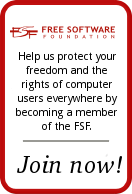October 2009
Monthly Archive
October 31, 2009
The MassCUE Conference for 2009 is over. Some part of me wishes it were still going on, but then sanity kicks in and I am glad the three days have passed. I look forward to the ghouls, goblins, ghosts and superheros who will visit in costume tonight for Halloween.
I’m dressing as Norm Abram, master woodworker, plaid shirt, toolbelt and all. I won’t be alone. Popular Woodworking has encouraged it. (Thanks for all the years of New Yankee Workshop, Norm!)
Gillette gave us a great venue. The conference was full; 1300+ over two days got to see speakers, keynotes, demos, vendors and the Patriots practicing on the field both days!
Several of you came by the registration table where my volunteer assignment put me (and I enjoyed immensely). It was great to see you and I was glad to be able to speak with several of you.
Share your tales of the sessions here because nobody could get to all of them. I sneaked away from the registration table long enough to attend the session on Scratch given by Mitchel Resnick of MIT.
Programming as a creative activity has been around since BASIC hooked me in on my TRS-80 back in the 1970s, and LOGO was great for kids, too. Scratch is another step in the right direction because it abstracts the tedium of typing correct programming syntax and lets a student concentrate on the creative structure instead. Scratch is very visual and embeds the programming effort in an effective envelope that allows a person to imagine, create, test, share and rework. The on line storage at the Scratch servers makes projects by others into tools for exploration and development. If your posted project inspires another user to experiment on your work, the result automatically shows the development sequence, giving credit to each contributor, your original work and that of your collaborator.
As a result, a community of effort can develop around a project with several people making contributions to create projects that have input from many, even when the contributors are scattered around the globe. Scratch may be to students and schools what open source is to professional programmers. Time will tell, but Scratch may be a path that leads young people into the culture and community of sharing/collaborating and and contributing. It could help to produce the next generation of open source programmers.
Scratch is available for download from http://scratch.mit.edu/ and is available for both Windows PC and Macintosh. A Linux version is in beta and can be downloaded for Debian/Ubuntu systems.
October 24, 2009
Posted by Algot Runeman under
Events,
MassCUE | Tags:
Conference,
MassCUE |
Leave a Comment
MOSSSIG is a special interest group of MassCUE. Next Wednesday and Thursday are going to be fun. This year’s conference [you can download a copy of the session schedule] is at Gillette Stadium where the Patriots football team play their home games. There are conference rooms that are a part of Patriots Place, which is best known for the new retail shops and CBS Scene.
If you have registered to attend, I hope you will look for me at the registration area or CUE Central. I would love to get the chance to talk to you. Unfortunately, if you have not registered, it is too late. The conference is a big success, full for both days. I cannot recommend attempting to show up for a walk in registration, either.
The conference is co-sponsored by the Massachusetts Superintendents (M.A.S.S.) and that, along with the new location may explain the crowd. Superintendents control who gets to go to conferences in Massachusetts. Perhaps co-sponsoring gave the “go ahead” to sending more this year than ever before.
Open Source has some sessions, too.
Wednesday
Google Docs/Netbooks/Moodle
Sugar
Using Moodle to Build PLCs
Free Tech Tools in the Math Classroom (Scratch)
Moodle in the Elementary Classroom
Software that Costs Little and Gives a Lot!
Thursday
Thinking Creatively with Scratch
Outside the Box with Moodle!
Open Source Opportunities
MITs Imagination Toolbox
Moodle, STEM, 21st Century Skills and Local Leadership
Of course there are many other sessions to attend, too. Good luck making your choices.
October 4, 2009
When you put down money at the counter of your software retailer or open the package from the vendor who ships software to your district, who owns that software? If you read the license terms, it would appear that the owner is NOT you or even your school district. The terms of the license generally have language which offers you a non-exclusive USE of the software, but not ownership.
A court battle is under way, pitting a man named Timothy Vernor who sold (by way of eBay) older versions of Autodesk products which he legitimately aquired.
Well, a federal district court in Washington state has ruled that when you buy shrink wrapped software you own it, at least in your ability to then sell it used.
Free software goes the court decision one better, of course. The GPL and similar licenses only limit the ability to lock up the software in any proprietary way. Once free, always free. I think I like that better all the way.


